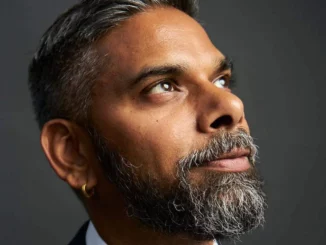
NEW DELHI (TIP): In a boost to Gujarat Chief Minister Narendra Modi‘s profile ahead of the assembly elections, Britain has ended its official nocontact policy with the state after the 2002 riots and will be looking for “active engagement” that promises to open “a new chapter” in its relations with Gujarat.
Modi, who has launched a robust campaign for his re-election, was quick to welcome the British government’s decision, saying better late than never. “Der Aaye, Durusta Aaye!! I welcome UK Govt’s step for active engagement & strengthening relations with Guj. God is Great,” (sic) Modi wrote on his Twitter account.
In a press statement, Hugo Swire, the new British minister in charge of India, has asked the British High Commissioner James Bevan to visit Gujarat and meet Modi and his senior cabinet colleagues. ‘This will allow us to discuss a wide range of issues of mutual interest and to explore opportunities for closer cooperation, in line with the British government’s stated objective of improving bilateral relations with India,’ Swire said. Britain’s turnaround comes a decade after the 2002 Gujarat riots, in which three Britons were killed. In his statement, Swire said: ‘We also want to provide the best possible support for British nationals who live in, work in or visit Gujarat; and to the many Gujaratis who now make up one of the most successful and dynamic communities in the UK.
‘I feel that active engagement will help further these interests. We will consider in the light of the High Commissioner’s visit how best to take forward our relationship with Gujarat.’ Sources in the British High Commission in New Delhi said the British envoy will be visiting Gujarat within a month and meet Modi and key figures in his government. The effort will be to explore linkages between universities, research institutions and businesses between Britain and Gujarat, said the sources. The move opens a new chapter in Britain’s relations with Gujarat, said the sources.
Justifying the move, which has been criticised by some human rights campaigners, the sources in the high commission said the British government wanted a deeper and broader relationship with the whole of India and did not want to leave out an important state like Gujarat. They also said Britain saw a number of opportunities for tie-ups in areas of education, science and technology and innovation. Rejecting the criticism of Britain going soft on human rights issues, Swire said in London: ‘We want to support human rights and good governance in the state.’ Britain’s turnaround has come as a shot in the arm for Modi who is selling development agenda in the run-up to the December elections in the state. It has set the stage for international rehabilitation of Modi, who has been denied visa by the US for his alleged role in the Gujarat riots.





Be the first to comment